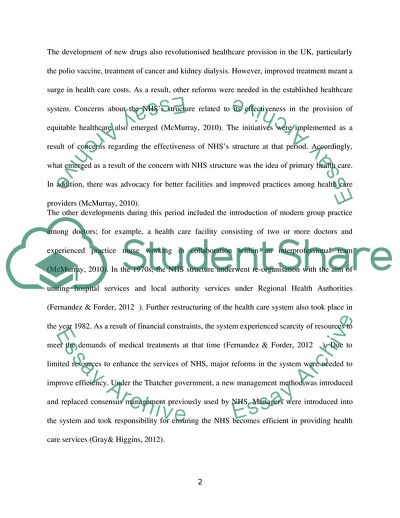Cite this document
(Health Promotion in NHS Essay Example | Topics and Well Written Essays - 2000 words - 2, n.d.)
Health Promotion in NHS Essay Example | Topics and Well Written Essays - 2000 words - 2. Retrieved from https://studentshare.org/health-sciences-medicine/1861671-health-studies-discuss-the-origins-structure-and-function-of-the-nhs-and-compare-this-to-the-healthcare-system-of-at-least-one-other-country
Health Promotion in NHS Essay Example | Topics and Well Written Essays - 2000 words - 2. Retrieved from https://studentshare.org/health-sciences-medicine/1861671-health-studies-discuss-the-origins-structure-and-function-of-the-nhs-and-compare-this-to-the-healthcare-system-of-at-least-one-other-country
(Health Promotion in NHS Essay Example | Topics and Well Written Essays - 2000 Words - 2)
Health Promotion in NHS Essay Example | Topics and Well Written Essays - 2000 Words - 2. https://studentshare.org/health-sciences-medicine/1861671-health-studies-discuss-the-origins-structure-and-function-of-the-nhs-and-compare-this-to-the-healthcare-system-of-at-least-one-other-country.
Health Promotion in NHS Essay Example | Topics and Well Written Essays - 2000 Words - 2. https://studentshare.org/health-sciences-medicine/1861671-health-studies-discuss-the-origins-structure-and-function-of-the-nhs-and-compare-this-to-the-healthcare-system-of-at-least-one-other-country.
“Health Promotion in NHS Essay Example | Topics and Well Written Essays - 2000 Words - 2”. https://studentshare.org/health-sciences-medicine/1861671-health-studies-discuss-the-origins-structure-and-function-of-the-nhs-and-compare-this-to-the-healthcare-system-of-at-least-one-other-country.


